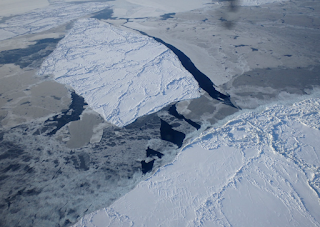Climate scientists say the magnitude and rate of sea ice loss this century is unprecedented in 1,500 years and issue a warning on the impacts of a changing climate.
The Arctic experienced its second-warmest year on record in 2017, behind only 2016, and not even a cooler summer and fall could help the sea ice rebound, according to the latest Arctic Report Card.
"This year's observations confirm that the Arctic shows no signs of returning to the reliably frozen state that it was in just a decade ago," said Jeremy Mathis, director of the Arctic program at National Oceanic and Atmospheric Administration (NOAA), which publishes the annual scientific assessment.
"These changes will impact all of our lives," Mathis said. "They will mean living with more extreme weather events, paying higher food prices and dealing with the impacts of climate refugees."
The sea ice in the Arctic has been declining this century at rates not seen in at least 1,500 years, and the region continued to warm this year at about twice the global average, according to the report. Temperatures were 1.6° Celsius above the historical average from 1981-2010 despite a lack of an El Nino, which brings warmer air to the Arctic, and despite summer and fall temperatures more in line with historical averages.
Read more at Arctic Report Card: Lowest Sea Ice on Record, 2nd Warmest Year

No comments:
Post a Comment